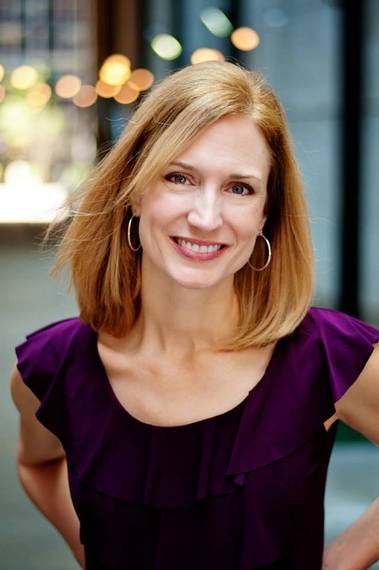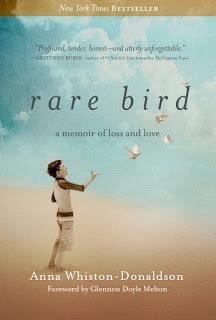Rare Bird, the New York Times best seller by Anna Whiston-Donaldson, is a powerful and moving account of how one family managed to survive the unthinkable. Published last year by Convergent Books, it is now available in paperback.
I met Anna at a blogging conference over a year ago, and it was here where she told me about the journey she and her family had gone through after the freak accident that took the life of her then 12-year-old son, Jack, four years ago.
I was honored when she asked me to review her book when it came out last year. But I was a little reluctant when it arrived.
Anna seemed like the same type of hands-on, ever-present mom that I strive to be. She's happily married and our children are around the same ages. This was a little too close for comfort. If an accident could happen to her son, well I didn't want to finish that thought. This wasn't going to be a light read. What did I get myself into? Then I started reading, and I couldn't put it down.
Anna writes in the introduction that she thought her first book would be similar in tone to her popular blog, An Inch of Gray. She imagined she would share her tips on painting furniture and decorating, maybe even adding some inspirational bible verses. She didn't think she would write a memoir about loss:
"I wish I had nothing to say on the matter of loss, but I do. Because one ordinary day I encouraged my two kids to go out in the rain, and only one child came home. I learned in that moment what many other people already knew: that it can all turn to shit in a heartbeat. All of it. Our families. Our futures. Our dreams. Even our faith."
Rare Bird is an intimate and at times raw look at how one family walked through grief. Anna beautifully and honestly lets us see her pain and the immense difficulty of not only grieving her son but also how she mothered her then 10-year-old daughter, Margaret, through the most horrible period of her young life, the loss of her best friend and brother.
I asked Anna if there's a piece of advice she could share with other women who find themselves in the almost impossible position of dealing with their own profound grief, while still needing to be the caregiver of the family?
This is a great question, Kathy. I think that often instinct kicks in, with the need to mother the one right in front of you. I'd say follow that instinct, and do your best. But also try to carve out times when you can grieve on your own. I did this while driving in my car, taking a shower, and times when I had a few hours off from work and my daughter was in school.
The weight of my grief was too frightening for her, so I tried to give myself chances to really let it out when she wasn't around.
That doesn't mean I recommend hiding grief and sadness from our other children. I just somehow needed to be "OK enough" that I didn't make her more frightened and sad than she already was. I didn't want her to feel like she was losing her mom, too.
You share very honestly how after the accident some of your relationships changed. People who you thought would always be there for you weren't able to support you, and others that you weren't as close to became very important. What advice can you give to people whose friends or family are experiencing a loss of a loved one? What did you find helpful? What gave you comfort?
I would recommend JUST SHOWING UP, physically and emotionally. In the early days, this means showing up at the funeral and at their home. Later, it means reaching out again and again, and NOT taking it personally if your friend seems different. She's going to be different, not by choice, but just by circumstance. She needs to know you are still there for her, and will be long after the casseroles stop coming.
I'd also beg people NOT to talk themselves out of helping just because their friends might have closer people in their inner circle. Sometimes those in the inner circle are unable to be helpful. Your kind word, your hug, your text, your card may be exactly what a hurting person needs in that exact moment. Follow the inner prompting to reach out! Every small, kind deed will ease the pain a little bit.
Anna what would you like people to take away from Rare Bird?
I'd like those who have suffered profound disappointment and pain to know that they aren't alone, and that it is possible to survive and even thrive after loss.
I'd like those who have not experienced such pain to get a glimpse of how to show up for others in times of heartache. And without trying to provide answers, or shove religion down anyone's throat, I hope I'll be able to show how faith in God, even a teeny faith like mine, can provide comfort and hope in a dark time. Love never dies.
I can't stress how much Rare Bird and Anna's story moved me. It's a must-read for anyone who has ever walked through grief, and it's a great primer for the rest of us.
A version of this piece was first published on Kathy's site, My dishwasher's possessed! You can get more information about Anna's book, Rare Bird here.


